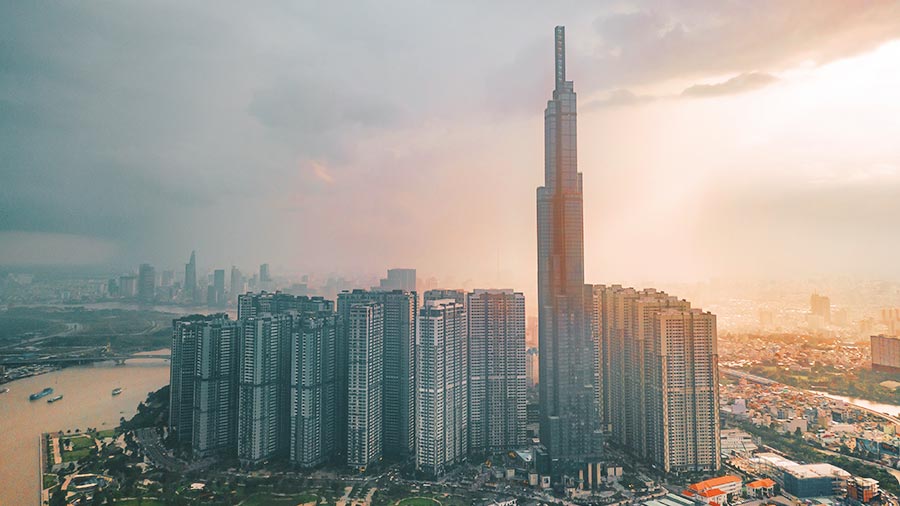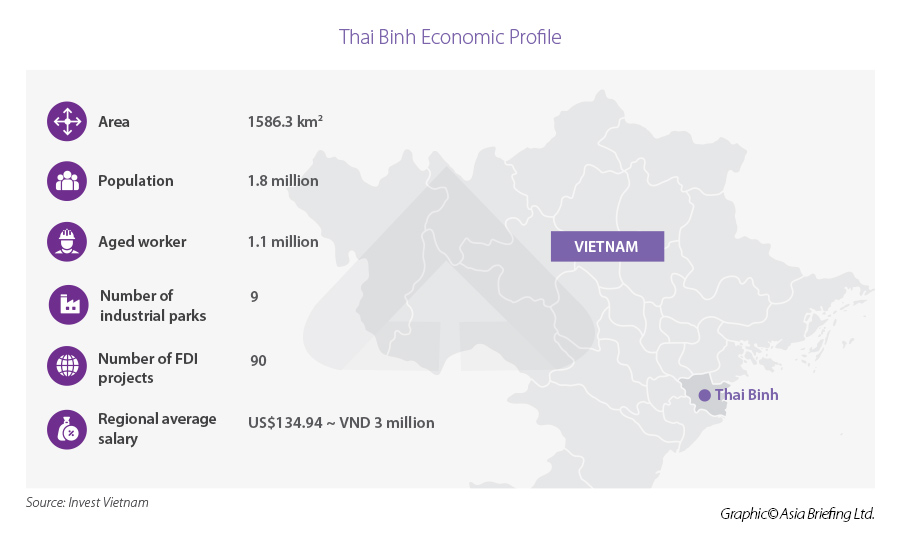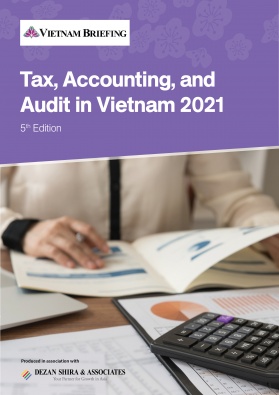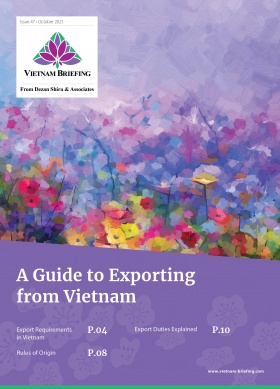Vietnam’s Thai Binh Province: Red River Delta’s Attractive Investment Destination
- Thai Binh province, situated in the Red River Delta, ranked 5th among 11 localities on the Provincial Competitive Index (PCI) 2020.
- With advantages in geographical location, natural resources, adequate labor supply, and infrastructure, the province is a rising attractive destination for foreign investors.
- The province’s infrastructure, agriculture, and tourism are key factors contributing to Thai Binh’s growth.
Thai Bin province located in the northern coastal area of the Red River Delta, is described as a floating island. Spanning across 1,586 square km, Thai Binh has a population of around 1.86 million.
Thai Binh’s favorable geographical location, significant potential of natural resources such as gas, solar, and wind energy, abundant and high-quality labor supply, and development of industrial infrastructure make it an attractive destination in the Red River Delta for foreign investors.
Despite COVID-19, Thai Binh has been attracting foreign investment with impactful government measures to speed up the disbursement of public investment funds and site clearance for infrastructure projects.
FDI and business environment
Thai Binh currently has 97 FDI projects with registered capital of US$1.31 billion. The province ranked 25 out of 63 provinces in the mid-high category in the 2020 Provincial Competitiveness Index (PCI) ranking and climbed 13 places to 20th in the Public Administration Performance Index (PAPI) rankings.
In 2020, Thai Binh climbed three places in the PCI ranking compared to 2019 with high scores in four out of 10 sub-indices – entry costs, time costs and regulatory compliance, policy bias, and law and order.
In 2021, besides dealing with COVID-19, Thai Binh has been implementing significant initiatives to improve its investment and business environment as it has identified FDI as a critical stimulant to socio-economic development.
The focus has been on facilitating Resolution No 50-NQ/TW issued in 2019 by the Politburo towards finalizing regulations and policies to increase the quality and efficiency of foreign investment until 2030. It also accentuates the mission to turn Thai Binh into an attractive foreign investment destination.
FDI projects in Thai Binh Economic Zone
The Thai Binh Economic Zone (EZ) is one of 17 EZs in the country that act as both an industrial cluster and a coastal service-trade and urban area. During the past few years, Thai Binh has focused its resources on facilitating the infrastructure of Thai Binh EZ, reforming administrative procedures, and improving the business environment.
Located within the Thai Binh EZ is the Lien Ha Thai industrial park, a key industrial area expected to drive Thai Binh’s socio-economic development and growth in the Red River Delta. Lien Ha Thai IP is the first industrial park to be constructed in Thuy Lien commune and Diem Dien town with land use scale of 588.84 hectares and total investment capital of US$3.8 billion.
Five investment projects with a total registered investment of US$600 million, a breakthrough to the province’s socio-economic development, have recently received investment certificates by the People’s Committee of Thai Binh province.
LOTES Thai Thuy Vietnam Factory Investment Project of Lotes Vietnam Co., Ltd and Greenworks Thai Binh Vietnam Factory Project of Greenworks Co., Ltd are two prominent projects in the Lien Ha Thai IP. The former has a total scale of 15 hectares and total investment capital of US$120 million with a focus on manufacturing electronic and computer components and industrial machinery components for export. Greenworks Thai Binh has a scale of 20 hectares with total investment capital of US$200 million with a focus on garden equipment and accessories for export to the US and Europe.
Thai Binh’s sustainable agricultural development
As Thai Binh is the northern rice granary of Vietnam, the sector has witnessed major development with the integration of science and technology. Within the first nine months of 2021, the agriculture, forestry and fishery sectors recorded a 2.4 percent growth in value.
Thai Binh is the only locality in Vietnam appointed by the Netherlands Development Organization (SNV) to implement the five-year AgResults Vietnam Greenhouse Gas Emissions Reduction Pilot (AVERP) project from 2016 to 2021 on sustainable farming and production.
The project has helped reduce greenhouse gas (GHG) emissions by 0.5 tonnes per hectare of rice farms and increase productivity by 0.2 tonnes per hectare. After five years, it has successfully applied the most advanced testing methods to present effective technology packages for increasing rice yield and reducing greenhouse gas, paving the way for safe and sustainable agricultural production for farmers.
Local government agencies have also implemented effective policies to support the sector. Plan No. 53/KH-UBND on the transformation of crop structure on rice land in 2020 issued by the People’s Committee of Thai Binh province serves as an overarching guideline for the sector’s growth. In addition, Thai Binh is moving towards a service-oriented economic structure centered on agriculture.
A promising outlook for tourism
Thai Binh is a Level 1 – safe zone (the lowest in a four-tier scale) indicating the least restrictive measures due to the low cases of COVID-19 with all services and activities allowed to resume as normal. Therefore, although the price index of the sector decreased by 3.72 percent due to COVID-19, the tourism industry is witnessing a positive outlook.
Thai Binh has a coastline of 54 km (33 miles), making it a key tourist destination. The most recent trends are eco-tourism and agri-tourism with Con Den and Con Vanh eco-tourist zones as well as natural and historical sites.
In October 2021, the Prime Minister approved the plan of the preservation and restoration of the tombs and temple dedicated to the Kings of the Tran Feudal Dynasty in Thai Binh. This is regarded as a critical decision towards creating a tourism ecosystem, contributing to the province’s socio-economic development.
In addition, Thai Binh aims to promote the One Commune, One Product Program (OCOP) which entails increased sales of signature local food from a specific area. This includes promoting products such as Thien Duc rice cake and Minh Tan fortune tree while improving service quality to increase visitors’ stay length, strengthening communication with domestic tourists and tourism businesses.
Thai Binh’s tourism industry attracts visitors from across the world with its unique cultural heritage such as the Dong Xam silver carving village, Tan Le mat weaving village, and key festivals including Keo Pagoda Festival in Vu Thu district and Tran Temple Festival.
Future outlook
In the 2021-2025 period, the provincial authorities have planned investments in 37 projects specialized in industry, agriculture-fisheries, trade services, construction of infrastructure facilities of industrial parks and industrial clusters, transport infrastructure, environmental protection, and construction of hydraulic works and dikes.
Thai Binh will continue to accompany businesses, constantly innovating to create an attractive environment for investors while contributing to promoting growth and transforming the local economic structure in the direction of industrialization, modernization, and improvement of people’s living standards.
About Us
Vietnam Briefing is produced by Dezan Shira & Associates. The firm assists foreign investors throughout Asia from offices across the world, including in Hanoi, Ho Chi Minh City, and Da Nang. Readers may write to vietnam@dezshira.com for more support on doing business in Vietnam.
We also maintain offices or have alliance partners assisting foreign investors in Indonesia, India, Singapore, The Philippines, Malaysia, Thailand, Italy, Germany, and the United States, in addition to practices in Bangladesh and Russia.
- Previous Article COP26 and Climate Change: Vietnam’s Commitment to Reducing Emissions
- Next Article RCEP and Vietnam: New Opportunities for Investors































